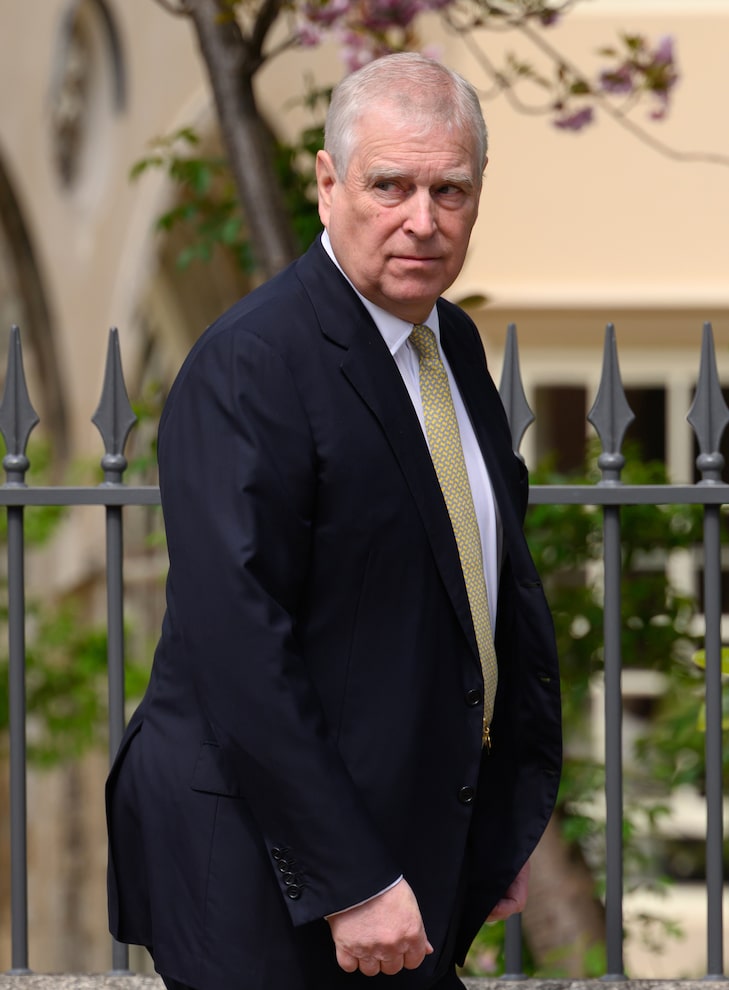News December 29, 2024
President Jimmy Carter Dies at 100 — National Day of Mourning Set for January 9
 Getty Images
Getty Images
President Jimmy Carter, who had been the oldest living former U.S. president, the longest-lived U.S. president in history, as well as the U.S. president to live the longest time after leaving office, has died at 100, The Atlanta Journal-Constitution reports.
His son Chip Carter confirmed that his dad died at his Plains, Georgia, home at 3:45 p.m.
Carter had spent nearly two years in hospice care, during which time he lost his wife, former First Lady Rosalynn Carter, who died at 96 on November 19 of last year.
President Joe Biden spoke live about his great friend, lauding his "simple decency." He went on, “In today’s world, someone could [look] at Jimmy Carter and see a man of a bygone era with honesty and character. Faith and humility mattered. But I don’t believe it’s a bygone era. I see a man not only of our time, but for all times, someone who embodies the most fundamental human values we can never let slip away.”
He also urged Americans, “Never give up hope. Never give up hope. I mean it from the bottom of my heart. So much negative this month.”
Biden has ordered an official state funeral for Carter, and set January 9 as a national day of mourning.
Carter, who battled brain cancer that went into remission, had been unwell for years.
In an exclusive interview with Southern Living published June 7, Carter's grandson Jason, the oldest of his grandkids, said the son of Georgia had been spending some whole days sleeping and that he had been "experiencing the world as best he can."
Jason had recently visited with Carter, telling him he didn't know what to tell people who asked how the former president was doing. “And he kind of smiled and he said, ‘I don’t know, myself,’” Jason revealed. “It was pretty sweet."
An outspoken critic of President Trump's first term, in November, Carter had fulfilled a stated wish to live long enough to vote for Kamala Harris for president.
A lifelong Democrat, Carter was the 39th president of the United States, serving from January 20, 1977-January 20, 1981. He defeated one-termer Gerald Ford and was in turn defeated by Ronald Reagan.
The 2024 Presidential Greatness Project Expert Survey ranked Carter at no. 22 out of 45. For context, Ford sat at no. 27 and Reagan at no. 16, with President Joe Biden at no. 14 and former President Donald Trump (first term) ranked last.
Carter's time in office was eventful. He pardoned all Vietnam draft dodgers, was successful with the Camp David Accords and the Panama Canal Treaties, and established the Departments of Energy and of Education.
On the lighter side, he was strongly identified with his work as a peanut farmer, and his brother Billy Carter — who used his newfound notoriety to plug Billy Beer — was the butt of many jokes.
Carter was challenged by the nuclear accident at Three Mile Island, the Soviet invasion of Afghanistan, inflation, and the Iran hostage crisis, the latter of which came to an end only after his defeat.
Texas politician Ben Barnes admitted to The New York Times in 2023 that he had been part of a process to persuade Iran to hold the hostages until after Reagan won the election. The hostages were ultimately released minutes after Reagan's oath of office on January 20, 1981, after 444 days in captivity in Tehran.
A devout Christian who referred to himself as born-again, Carter was a notable humanitarian during his decades out of office. His Carter Center, devoted to expanding human rights, was widely praised, earning him the 2002 Nobel Peace Prize. He was also a high-profile figure in the nonprofit Habitat for Humanity and served as a peace emissary around the globe, including in negotiating with regimes like North Korea.
Carter was born October 1, 1924, in Plains, Georgia. He attended the U.S. Naval Academy, and at that time met Rosalynn, marrying her in 1946.
After a long military career and working as a farmer, Carter served as a Georgia state senator (1963-1967) and ran twice for Georgia governor, winning the second time and serving from 1971-1975.
Though he had run as a conservative Democrat, once in office he said he felt, "The time of racial discrimination is over."
Carter announced his bid for the presidency on December 12, 1974, running on optimism. In 1976, he published his memoir "Why Not the Best?" and engaged, with running mate Walter Mondale, in the first presidential and vice-presidential debates in more than 15 years.
Controversially, and famously, the straitlaced Carter granted an interview to Playboy that was released immediately before the 1976 election in which he admitted, "I've committed adultery in my heart many times."
Once in office, Carter faced many challenges stoically and took heat for his famous "crisis of confidence" address delivered on July 15, 1979. He was an insular figure, in stark contrast to his later public image, known for rebuffing backroom deals and back-slapping.
Perhaps Carter's greatest challenge to re-election came when Sen. Ted Kennedy, a fellow Democrat, primaried him. Kennedy lost, but refused to endorse Carter in the end, which wounded the incumbent politically.
Along with Republican Reagan, Carter faced competition from Independent John Anderson.
In one of the most impactful televised presidential debates in history, former actor Reagan made use of his on-camera experience to rebut Carter with the zinger, "There you go again." It became a catchphrase, and Reagan's support dwarfed Carter's at the last possible moment, leading to a landslide win that tainted Carter's legacy.
Though a party loyalist, Carter did not shy away from criticizing his Democratic successors Bill Clinton and Barack Obama occasionally. He was a fierce critic of George W. Bush and especially of Donald Trump.
Carter's public life did not seriously slow down until his mid-'90s, when cancer and a series of falls rendered him less mobile than before. He entered hospice care on February 18, 2023, but attended his wife Rosalynn's funeral on November 27 of that year.
In 2007, Carter was the subject of the late Jonathan Demme's doc "Man from Plains," which followed him on his promotional tour for his 2006 book "Palestine: Peace Not Apartheid."
As reported in The Ocala StarBanner in 2007, Demme, interviewed alongside Carter while plugging the doc, asked him, "Do you remember what my first idea was? I said, 'Let's go to Iran,"' referring to the site of the hostage crisis at the U.S. embassy, a dark stain on Carter's presidency. "Maybe we could fly in to Tehran and go find the embassy and see what happens."
"We very quickly got a better idea," Carter replied, laughing.
Carter is survived by his four children, including Amy Carter, a child during Carter's time in the White House; and by his 22 grandchildren and great-grandchildren.
His death marks the first time a former Democratic president has died since Lyndon Johnson nearly 52 years ago.
















